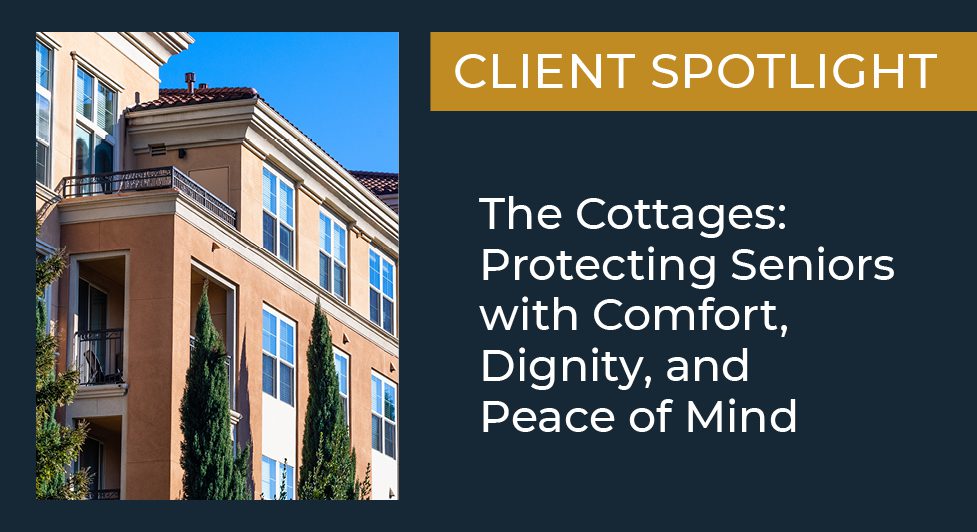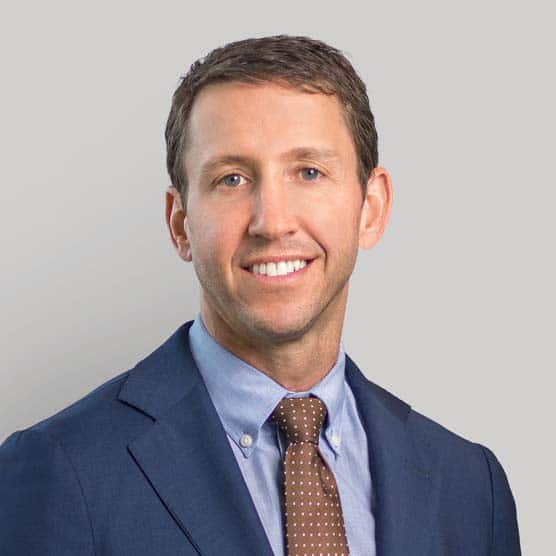By the time Mark Maxfield became CEO and owner of The Cottages, an assisted living and memory care business in Boise, Idaho, he knew what it meant to be a caregiver. It was at The Cottages, which was founded in 2001 by his father, where Mark learned the ins and outs of the caregiving business. Working in operations for over 20 years, he saw first-hand the importance of providing comfort and dignity to residents as well as the challenges families went through—financially and emotionally—to move their loved ones to assisted living.
The Cottages is a residential model of care with 10 locations, most with two buildings and up to 32 residents. The communities are built like homes, with a common living room, dining room, and kitchen. Mark recently obtained bridge loan funding from Lument for three communities in advance of permanent financing via the U.S. Housing and Urban Development (HUD)/Federal Housing administration (FHA). The bridge loan provided Mark and his team the opportunity to take ownership, implement their operational model, improve performance, create value for the company, and most importantly, provide quality care and housing for local seniors.
With growth and culture at the forefront of his priorities, Mark sat down with Lument to share the benefits of a home-like community for seniors, why he considers himself in the “peace of mind” business, and what’s at stake for the future of assisted living.
Lument: How did your previous jobs shape your career path and current position as CEO?
Maxfield: Before college, I was a firefighter during the Yellowstone fires. Following a church mission, I was on a SWAT team and then prior to my Cottages venture, I managed group homes for delinquent boys. Even though I am CEO, I consider myself a caregiver because my mission is to help families protect and watch over their loved ones.
Lument: How do you differentiate your business in a crowded market?
Maxfield: What’s distinct about The Cottages is our focus on staff and culture. I take good care of my staff, empowering them to develop and grow their careers. In turn, my staff is compassionate in caring for residents. The outcome is happy residents, loyal caregivers, and very low staff turnover.
For residents, what’s different is that we offer a smaller, home-like experience. It allows us to have higher staff-per-resident ratios than the industry standard and, as a result, our caregivers can develop a bond with each resident. We also host a variety of activities that encourage social interaction and unique programs, such as our “Never Too Old to Dream” program.
For families, you might say that I’m in the “peace of mind” business—providing comfort that their loved ones are in a caring and safe environment. Over the years, many families have come to appreciate our value, saying: “we should have done this years ago.”
Lument: You say that you’re in the “peace of mind” business? How so?
Maxfield: Prospective residents’ children are my primary audience. A big change for them is realizing that their parents may require care from someone else. Many children have guilt—they are unable to care for their parents for whatever reason—and some parents don’t want to move. The care we provide gives families peace of mind that their parents are not alone and that someone is there to watch over them around the clock.
Lument: What are some of the challenges in operating The Cottages?
Maxfield: One challenge of our industry will always be staffing and finding the right people who are passionate and want to do this type of work. Another is balancing state regulations with the “common sense” care that we seek to provide. Financing an assisted living business is more challenging now than when I first started. In the early 2000s, you could buy land and construct a new building for $1 million. Now, it’s four times that cost along with higher interest rates. As a result, assisted living businesses may have to charge more than some families can afford.
Finally, the Silver Tsunami is coming. According to the U.S. Census Bureau, by 2030 all Baby Boomers will be 65 or older, so there will be challenges for our healthcare system to meet demand since Medicare doesn’t pay for assisted living and Medicaid isn’t an option for most.
Lument: I imagine many of those challenges cross over into your work as the chair for the National Center for Assisted Living (NCAL) board of directors. In that role, what are you currently focused on and what makes you excited for its future?
Maxfield: I got involved with NCAL to influence the conversation around assisted living in our country.Current challenges include securing financing, the increasing costs of care, staffing, as well as balancing state nuances with federal regulations.
I am excited about the future because there are opportunities to increase quality and standardization across the industry and to build awareness. We must get better at improving the public perception of assisted living and helping to destigmatize “we had to put my mother/father in a home” thinking.
Lument: What legislative priorities are you working on?
Maxfield: A recent ruling by the Centers for Medicare and Medicaid Services (CMS) sets minimum nurse staffing standards with the goal of improving the quality of care at skilled nursing facilities. This sounds good in theory but may not work in practice. There’s already a nursing shortage in our country and mandating more hours of direct patient care in an already-reduced labor pool may shut down facilities across the country, especially in rural areas. This ruling could trickle down to the assisted living industry, so we’re keeping an eye on this issue.
Lument: What gives you the most satisfaction in operating the Cottages?
Maxfield: One of my greatest joys is helping staff members who never saw themselves as a leader, become leaders. Many of them worked in other businesses and never had the opportunity to grow. We teach, train, and empower them so they can advance their careers. We help them develop their leadership skills and some even get their administrative licenses, and it makes me proud to see them working hard and achieving their goals.

Lument: You previously mentioned the “Never Too Old to Dream” program. Can you tell us more about it and are there any favorite stories?
Maxfield: As we get to know our residents, we hear them say “if I could only do this one more time” or “I always wanted to do this.” Our program helps fulfill those dreams with unforgettable experiences. My favorite story is about Carol, a shy, sweet 95-year-old resident in a wheelchair. All she wanted was to go on a date, something she had not done throughout her life. So, I thought, let’s make that happen. I bought flowers and got down on my knee to ask her out. Then I made restaurant reservations, rented a limo, and put on my best suit. She wore a fancy dress and pearls. We went out and had a wonderful time. She talked about that day for the rest of her life.

